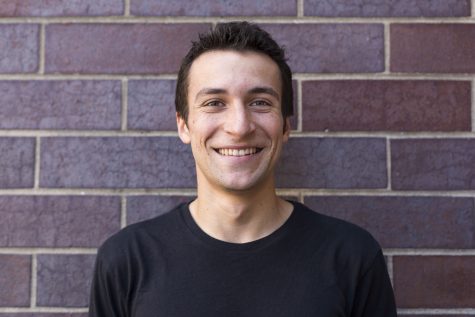Students, politicians speak on assault
October 16, 2014
The Women’s Equality Party gathered with students from universities across New York City on Oct. 15 in an effort to raise awareness about sexual assault on college campuses.
Following a closed roundtable discussion with student leaders from Columbia, Fordham, Hofstra and St. John’s universities, the group hosted an afternoon Q&A in Times Square.
The conversation was led by Christine Quinn, former speaker of the New York City Council, and Kathy Hochul, Democratic candidate for lieutenant governor of New York. Hochul was adamant that there needs to be change within the university system so that young women who have fallen victim to sexual assault feel supported.
“When we send our daughters off to campuses, we expect universities to make sure they’re protected, and that their friends are also part of a support system to make sure that they have all the resources they need,” Hochul said.
The conversation also touched on the Women’s Equality Act, a 10-point bill that aims to protect equal pay, equal work, equal choice and equal rights for New York women. Quinn said she is confident that the bill will pass.
“I have little doubt that we will have the votes we need,” Quinn said. “If somebody’s not clear, that’s not a condemnation of them; I applaud them for admitting it. These young women and the others like them out there will help them understand and take them through the reality of it.”
Zoe Ridolfi-Starr, a senior at Columbia and one of the founders of No Red Tape, a student group working to end rape culture at the university, alleged that both Barnard College and Columbia have mishandled sexual assault cases. She expressed her frustration that the schools would not hold themselves accountable.
“They have not once even responded to the reality that there’s a Title IX complaint, that 28 students came forward and filed federal complaints with the Department of Education,” Ridolfi-Starr said. “They won’t even [acknowledge] that that is happening, let alone start to address and actually work with the students.”
Donya Nasser, a senior at St. John’s, maintained that real action has to be taken by women everywhere in order for change to happen.
“You can tweet something, but that doesn’t mean that there’s going to be action followed up on it,” Nasser said. “When you have women like us, who are working on these issues every day, who face these issues, whose friends face these issues — and we have experiences, and we’re giving our information to the Women’s Equality Party — that’s what really influences policy for the good.”
Hochul praised the young women for their willingness to fight for the rights of women everywhere.
“I commend them for the courage to come here today and have this conversation,” Hochul said. “The public stance they’re taking on their campuses to elevate this debate and make sure that this is the last group of individuals who have [to] raise this, because we’re going to change the culture.”
A version of this article appeared in the Thursday, Oct. 16 print edition. Email Alex Bazaley at [email protected]






















































































































































